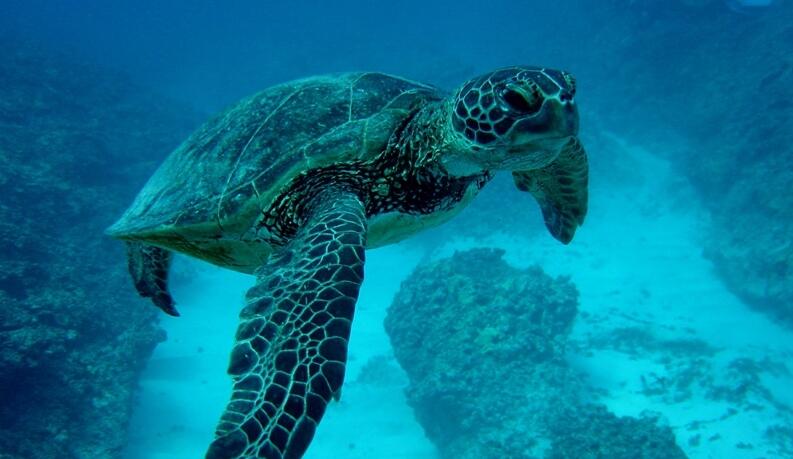This is a guest blog post from the Massachusetts Office of Coastal Zone Management (CZM), written by Jeff Ellis, COASTSWEEP Marketing and Social Media Intern.
Volunteering for Coastsweep
Since 1987, thousands of volunteers have scoured the shores of Massachusetts through COASTSWEEP, the statewide beach cleanup organized by the Massachusetts Office of Coastal Zone Management. These dedicated volunteers collect and document “marine debris,” the technical term for trash and other discarded items that end up in the ocean and coastal environment.
This hard work doesn’t just beautify beaches, it saves lives…and already endangered lives at that.
Of the seven species of sea turtles worldwide, four can be found in Massachusetts: the green, Kemp’s ridley, leatherback and loggerhead. Like all sea turtles, they are either threatened or endangered.
One of the favorite foods of Kemp’s ridleys and leatherbacks is jellyfish. When these unsuspecting sea turtles see a plastic bag or a balloon gently floating by, they think they’ve found a meal. Many choke and others end up with damaged digestive tracks or clogged stomachs that make them feel so full they forego eating and starve.
Sea turtles can also become tangled in lost fishing nets, ropes, or similar material, which can hamper their swimming and surfacing to breathe. Juvenile turtles can become deformed if debris is wrapped around their shell (or carapace) restricting its growth.
Even with these challenges, you can help:
- Volunteer for COASTSWEEP - See the Become a Cleanup Coordinator or Volunteer page for details.
- Try to cut back on your plastic bag use. Even when you’ve put them in a proper trash receptacle, there is a chance they’ll escape and be carried to the ocean by the wind.
- Practice tangle-free fishing - by always properly disposing fishing line, hooks, and more. Look for trash bins specifically marked for fishing line near docks and piers.
- Never release balloons into the air. Most make their way to the ocean.
- Learn more at CZ-Tip – Sharing Coastal Waters with Sea Turtles for details on the species found in Massachusetts and what you can do to protect them.
COASTSWEEP is just one of the many ways you can take action and get involved in your community. Our oceans and their creatures are an important part of our global ecosystem and it is our duty to protect them for generations to come, especially from ourselves.
